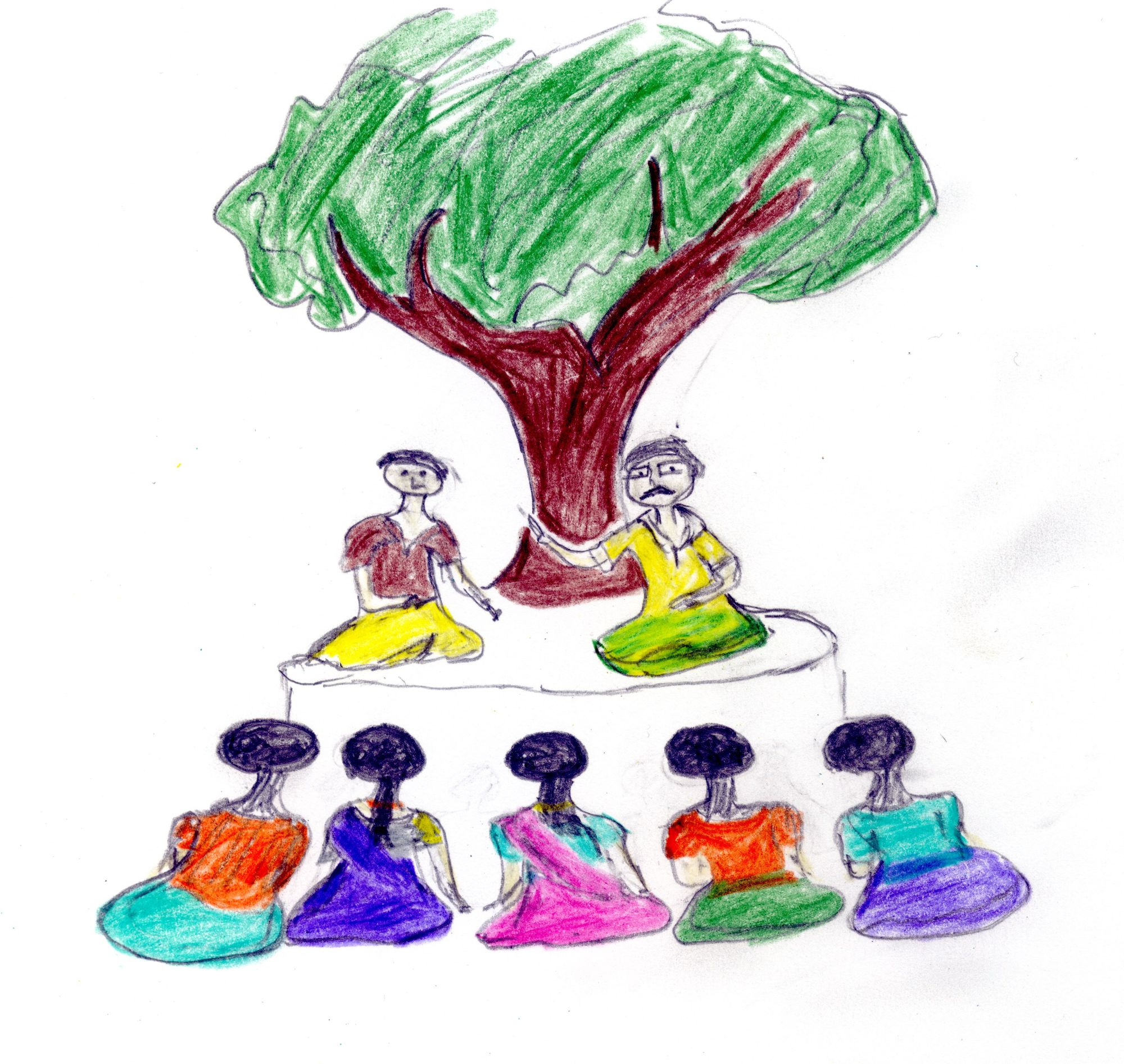Veranda Tales-Creative fraud

Storytelling has been an integral part of my life since childhood. I grew up listening to stories during the hot summer evenings and nights with my cousins. Mothers and grandmothers would gather all of us children for story time. It was usually pitch dark except for a very faint light coming from the flickering candle. Power cuts were as frequent as the hot and humid summer days. We all spread out on a cool concrete floor or on bamboo mats on the veranda intently listening to fascinating stories about kings, queens, princes, princesses, and peasants alike. Stories about love, life, families, and people entertained and taught us life skills. These stories transported us to distant worlds which were strange yet familiar. Often the same story told by two people sounded different as storytellers added new twists and turns adding their personal style and flair to the stories.
Storytelling wasn’t limited to summer evenings and bedtime. I was surrounded by adults that didn’t pass up an opportunity to share their wisdom using the art of storytelling. The rich and vibrant oral traditions include songs, poems, stories, and సామెతలు (Sametalu are proverbs in Telugu). Men and women sing songs as they work in the fields, grind grains and spices and other daily chores at their homes. Stories are often used to teach important life lessons, interpersonal skills, and survival skills. These stories and the time spent listening to them made our lives richer leaving an impression on me. This series is all about reliving those memories as I share these stories.
తిన్నఇంటి వాసాలు లెక్కపెట్టడం
In India, it was a common practice to give shelter to tired and weary travelers. Amma (అమ్మా is mother in Telugu) recounts her childhood and how travelers passing through would stop by her parent’s place to request food and shelter for the night. Amma grew up in a large house very close to a railway station on the Chennai-Howrah line. When I went to visit my grandparents, I could see the front veranda from the railway station. It was common for strangers to get off the train, walk in for a meal and stay for the night. Amma still tells stories about how her mother would cook extra food everyday for people that might stop by. One such visitor went on to become a famous movie actress, Waheeda Rehman.
The house was very large and built on higher ground with several steps leading down to the ground level. It was built to survive Godavari floods. The Godavari River was very close to their place. The ceiling had very large beams going across as a support and these beams are called వాసాలు (beams) in Telugu. I still remember water being carried on a కావడి (carrying pole or milkmaid’s yoke) from the river. The water used to be cloudy with red mud washed from nearby hills into the river when it was in flood. The water was then stored in large troughs and filtered for daily use. Whenever I hear the following story of a stranger, I remember my maternal grandparents' house.
As the story goes, a stranger came to Rammayya’s house asking for shelter for the night. Ramayya invited him in. Ramayya offered his guest meals and a room to sleep for the night. The guest enjoyed the meal and went to bed. The next morning, the guest went to గ్రామపంచాయత్ (Gram Panchayat or Village court) and told the judge that Ramayya’s house was his house and asked the judge to evict Ramayya. The guest told the judge that he had proof that the house was his. Ramayya was called into the court. The guest prompted the judge to ask Ramayya if he knew how many వాసాలు (beams or joists) the house has. When the Judge posed the question, Ramayya drew a blank. Then the guest told the judge how many వాసాలు (beams or joists), as he took the time to count them. The story ended with Ramayya losing his home. This story has become a cautionary tale to generous people that open their homes to strangers and also a tale of creative frauds that try to take advantage of good people.

It made me very sad that Ramayya lost his home. I created an alternate ending to the story that made me feel better. It was a small village. The judge must have known Ramayya and probably watched the house being built. So in my alternate ending; The judge says, “Very clever, but I know Ramayya owns the house and I helped him build it” and throws the case out.
